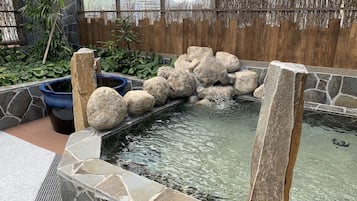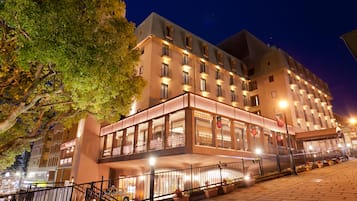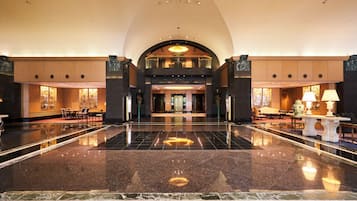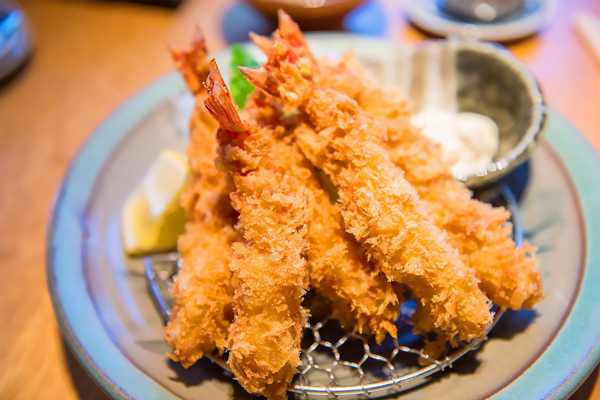Our Nagasaki Travel Essentials give you all the useful travel information you need to make the most out of your holiday travels to this major Japanese metropolis. We’ll look at the climate and best times to travel here, and information like emergency phone numbers, currency and electrical outlets. We will explore the best ways to get into Nagasaki, followed by the best ways to get around town.
Following this practical information, we will outline some of the most important festivals and celebrations in the area, as well as some of the most popular landmarks to visit. In the end, you’ll have all the basics to make lifelong memories during your trip here.
When is the best time to travel to Nagasaki?

- Nagasaki's climate is humid and rainy year-round. It sees cold, rainy winters and hot, wet summers. Spring and fall are temperate with soaking rains.
- The most rainfall can be seen in June and July, averaging around 36.6 cm.
- The warmest months of the year are July and August.
- The best time to visit in terms of weather is October. The most popular time to visit is during the summer, and it gets crowded during June through August.
Nagasaki basics

- Plug type: The plug type is Type A or B.
- Electricity: Electricity and current are 100 volts at 50/60 Hz.
- Currency: The currency is the Japanese yen.
- International dialling code: The international dialling code is +81.
- Emergency telephone number: For emergency telephone calls, dial 110 to reach police, 118 for the Coast Guard or 119 if you need an ambulance or need to report a fire.
Se også
- 8 Best Local Restaurants in Nagasaki

8 Best Local Restaurants in Nagasaki
Japan - 10 Things to Do in Nagasaki on a Small Budget

10 Things to Do in Nagasaki on a Small Budget
Japan - 10 Best Things to Do After Dinner in Nagasaki

10 Best Things to Do After Dinner in Nagasaki
Japan
How to get to my hotel in Nagasaki?

Nagasaki is a teeming metropolis and one of Japan’s largest cities, which means that almost any type of transport you prefer will get you here. You can fly, take a train or even arrive via a cruise ship.
Airports
The major airport in Nagasaki is Nagasaki Airport, which is about 25 miles from the city centre and boasts connections from Tokyo, Kagoshima, Okinawa, Osaka and many other destinations both domestic and international. Buses run from the airport to Nagasaki Station, and the trip takes about an hour.
Major train stations
Nagasaki Station is the main train station in the heart of the Nagasaki city centre. JR trains run to and from Fukuoka, Yamaguchi, Hiroshima, Osaka, Kumamoto, Oita and other major cities. Trips to and from these and other cities by train take several hours. Most major cities can be accessed, though some require connecting trains.
Ports
Nagasaki Port routinely sees cruise ships that disembark in the city centre terminal. The pier houses customs, immigration and quarantine facilities, and WiFi is available in the terminal. This is one of the primary means from which to visit the outlying islands such as Okinawa.
Billede taget af Suicasmo (CC BY-SA 4.0) Redigeret
How to get around Nagasaki?

Travel tips
Travelling around Nagasaki requires a bit of planning and forethought. Never assume that internet access will be available; you can rent pocket WiFi devices to carry with you. Use the Hyperdia app; it’s a commuter app that provides route options, fare prices and travel times. The Nagasaki Discount Card can save you a lot of money visiting various points of interest.
Underground system
Instead of an underground system, Nagasaki has an above-ground tram system similar to cable cars you might see in some Western cities. They’re inexpensive and efficient. They can get you almost anywhere you want to go. You can also purchase day passes to allow unlimited rides for a full calendar day. Various internet apps will allow you to create a timetable to get around the city. The cars are comfortable and run on a regular schedule, so you can count on them as a means to get where you want to go.
Taxi and rideshare apps
Taxi and rideshare apps can be an outstanding way to get around while customising your journeys specifically to your needs, but without the concerns that go with a car hire such as parking and gas. Rideshares Uber and Lyft, plus Ola and Didi, operate throughout the city and can travel to and from Nagasaki Airport. Traditional taxis can also be hailed on the street or called to arrange a pickup. Taxis and rideshares are convenient ways to get around because they’re on your timetable, whatever that may be.
Bus network
Nagasaki has an extensive bus network, with multiple stops around Nagasaki Station, Chuobashi Bridge and Mirai Nagasaki Cocowalk. The main stop is the Nagasaki Shinchi Bus Terminal. If you’re travelling within the city centre, the bus is a reliable way to get around, especially when you combine it with the tram network. You can buy a day pass for the buses or purchase a refillable Nagasaki Smart-card.
Car hire
Most major car hire agencies operate in Nagasaki, and a car hire can be an ideal way to get around if you want to see things on your schedule and have the freedom to go where and when you want. Nagasaki is generally a safe place to drive yourself, and a car hire allows you to see attractions that are a bit farther afield. Just a few of the services you can secure at the airport, train station, port terminal or various spots across the city include Hertz, Turo, Alamo and Budget.
Bicycle hire
Bicycles are very popular in Japan, and pedalling around can be a great way to see Nagasaki and the surrounding areas. They’re also a good way to go green, do your part for the environment and get some exercise all while exploring the countryside. A broad selection of bike hire services can be found across the city. 2 of the most popular include Bicycle Rental Seto, or Rentsaikuru Seto, and the Cycling Center, or Saikuringusentá.
What are the main annual events in Nagasaki?

Nagasaki Lantern Festival
- When: Held every January
- What: The Nagasaki Lantern Festival commemorates the Chinese New Year and celebrates the illumination of winter over 2 weeks, with the lighting of more than 15,000 Chinese lanterns, plus a procession, parade, dragon and lion dances, acrobatics and live music.
- Where: Chinatown, Hama-ichi and Kankodori Arcade, plus other venues across the city
Nagasaki Kunchi Festival
- When: Held every October
- What: The Nagasaki Kunchi Festival incorporates the Chinese and Dutch cultures that have played a role in the city’s cultural history over the past 400 years. Highlights include dance and live performances from representatives of the various city districts.
- Where: Suwa Shrine, Otabisho, Yasaka Shrine and Chuo Koen
Kanoukaen
- When: Held annually in late March
- What: Kanoukaen is a massive fire festival that reenacts the tales told by historical scrolls. It features around 200 performers dressed in samurai regalia marching through the trees that are brilliant with cherry blossoms, holding flaming torches.
- Where: Tachibana Park
What are the main landmarks in Nagasaki?

Nagasaki Atomic Bomb Memorial
The Nagasaki National Peace Memorial Hall for the Atomic Bomb Victims remembers those who died in the bombing that ended World War II. It’s a stone’s throw from the urban Peace Park and is next to the Atomic Bomb Museum. The 3 sites form an important part of Nagasaki’s historic legacy.
Hashima Island
Hashima Island is an abandoned mining facility that is also called Battleship Island or Gunkanjima. Visitors can tour overgrown industrial sites, workers’ quarters, concrete ruins and an eerie staircase known as the 'Stairway to Hell'. At the centre, a quiet Shinto shrine offers stunning views of the East China Sea.
Shimabara Castle
Shimabara Castle is also known as Takaki Castle and Moritake Castle. It’s a five-storey building whose white walls tower above Shimabara, Hizen Province. It features moats, 3 baileys and construction far larger than that of a normal daimyo of the Edo period. Tours are available that showcase the castle’s storied history.
Mount Inasa Viewpoint
Mount Inasa is a hill to the west of the city rising 333 metres into the sky, and the summit is reached via the Nagasaki Ropeway. The viewpoint offers astonishing views of the city below and the surrounding area. Access is completely free and features a restaurant and a souvenir shop.
Denne artikel indeholder meninger fra Go Guides’ redaktion. Hotels.com kompenserer skribenter for tekster, som fremgår på denne side. Kompensationen kan inkludere rejser og andre omkostninger.
Planlæg din næste rejse
Her kan du overnatte i Nagasaki

Nagasaki Marriott Hotel

Candeo Hotels Nagasaki Shinchi Chinatown

Hotel Forza Nagasaki

Dormy Inn Nagasakiekimae Hot Springs

Cuore Nagasaki EkiMae

Crowne Plaza ANA Nagasaki Gloverhill by IHG

Hilton Nagasaki

FAV LUX NAGASAKI

THE GLOBAL VIEW Nagasaki

Hotel Monterey Nagasaki
Relaterede artikler
- 8 Best Local Restaurants in Nagasaki

8 Best Local Restaurants in Nagasaki
Japan - 10 Things to Do in Nagasaki on a Small Budget

10 Things to Do in Nagasaki on a Small Budget
Japan - 10 Best Things to Do After Dinner in Nagasaki

10 Best Things to Do After Dinner in Nagasaki
Japan - 9 Best Places to Go Shopping in Nagasaki

9 Best Places to Go Shopping in Nagasaki
Japan - 10 Iconic Buildings and Places in Nagasaki

10 Iconic Buildings and Places in Nagasaki
Japan - 10 Great Restaurants in Nagasaki

10 Great Restaurants in Nagasaki
Japan - 10 Best Things to Do in Nagasaki

10 Best Things to Do in Nagasaki
Japan - 10 Great Restaurants in Beppu

10 Great Restaurants in Beppu
Japan
